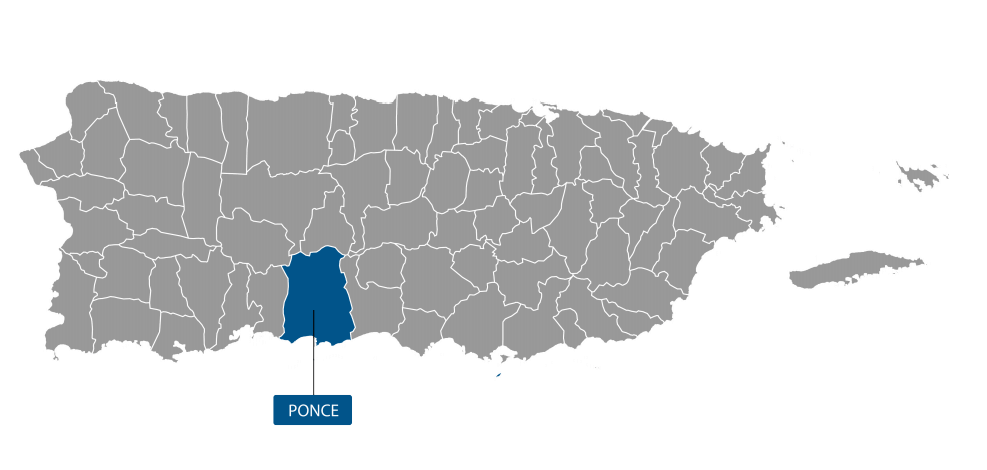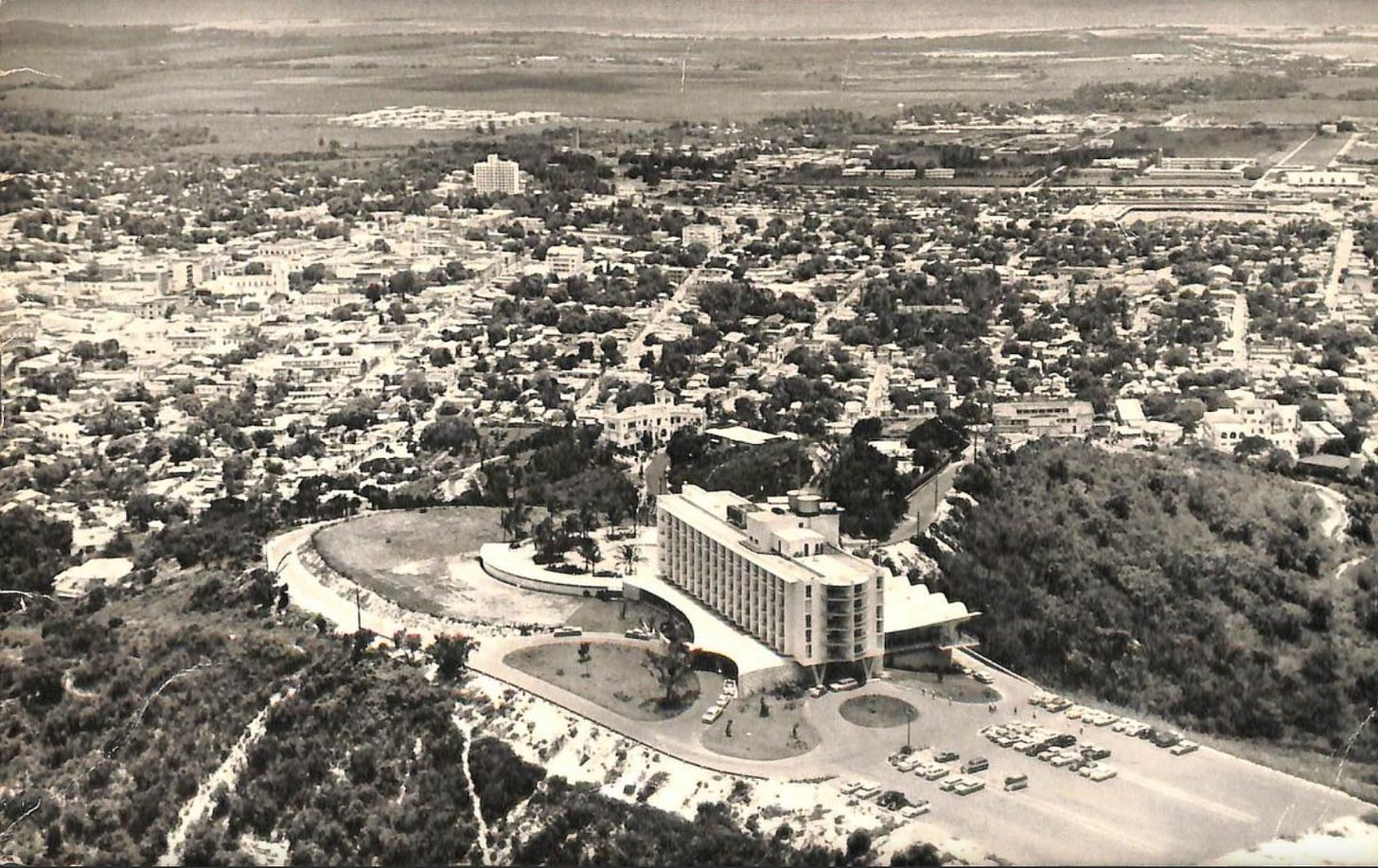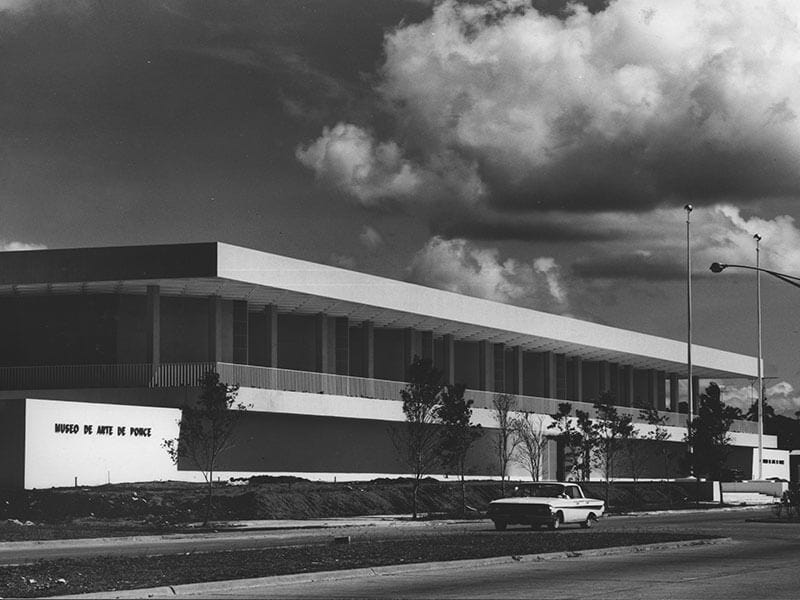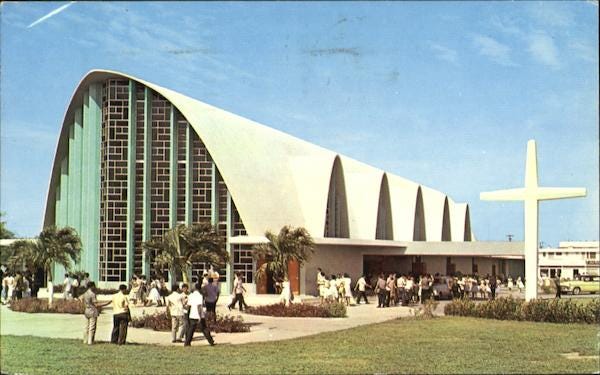Ponce: The Town That Built Me
In which Teófilo describes the setting upon which he happened into the world.
The place where one was born and raised leaves an indelible character in one's personality and outlook. In my case, that place is the city of Ponce (POHN-ceh), on Puerto Rico’s southern coast. I was born in the very late northern winter, in the mid 1960’s. Although the word winter is meaningless in Puerto Rico’s always warm, always verdant environment.

Ponce was named after Juan Ponce de León, the same one who “discovered” Florida, the first European to set foot in North America. I mean, he didn’t discover Florida, since he pretty much stumbled upon it, but that’s why he’s known best in the US mainland.
It so happens that Ponce de León was the first Spanish colonial governor of Puerto Rico. Having established himself in what was then the Island of San Juan Bautista, Ponce de León also established his family therein, never returning to Spain. His descendants in Puerto Rico probably number in the tens, if not in the hundreds of thousands, of which I am one - provided my current genealogical research is correct.
In 1692, the region that would come to be known as Ponce was a cow town dependent on the larger village of San Blas de Illescas de Coamo for its administration and governance. In what was to become Ponce, a number of neighbors built a chapel dedicated to Our Lady of Guadalupe, making the nascent village by shores of the Jacaguas River one of the very first places where devotion to Our Lady of Guadalupe took off outside of Mexico.
By 1877, Ponce had grown in size and importance so much that the King of Spain chartered the fledgling town as a city by royal decree. (One hundred years later, in 1977, I would be marching on the centennial celebration wearing my Boy Scout uniform and carrying a parade American flag). In 1898, Ponce was one of the points in which American forces disembarked during the Spanish-American War, thereby changing the city’s destiny, the Island’s, and my very own.
In the mid 1960’s Ponce was a sleepy, hot town of about 147,000 inhabitants. Because successive American and then Puerto Rican administrations centralized government operations in the capital of San Juan - a big mistake in my opinion - Ponce was a tad backwater-ish in the mid 1960’s - a hot, dusty, and perhaps even boring place for the Baby Boomers coming of age back then to enjoy. However, a brand-new Intercontinental Hotel already rose on a hill overlooking the city, becoming a magnet for the local society and its nascent middle class.

Right about that time Ponce was dependent on heavy industry such as petrochemicals and labor-intensive sugarcane crops. A small airport served it, next door to the Destilería Serrallés where the famous Don Q rum was and still is distilled. A two-lane road hugging a large part of Puerto Rico’s southern coast before turning into the vomit-inducing mountain roads of the Sierra de Cayey, joined Ponce with San Juan by land.
Despite its status as “boring,” the industrial revolution was making the city grow in leaps and bounds. A new Museum of Art, designed by renowned architect Edward Durrel Stone, opened its doors around the time of my birth. (In 1983 I would have the privilege of being a guide at that museum during the Master Francisco Oller exposition which was my first crash-course about the plastic arts, and the place of my first attempt at speaking English in public).

Across the Museum a new boulevard was being built, the Avenue of the Americas and across the boulevard, a new Catholic University was taking shape, next to a futuristic-looking parish church and its attached parochial school, founded in 1959, which later would become my own, as I was growing up in one of Ponce’s first suburban housing developments. The city even sported a number of buildings that qualified as being “high-rises.” Ponce seemed to have been awakening from a long dormancy and coming into its own, again.

Ponce, then, was the setting of my birth and for 20 years also the principal setting of my childhood, adolescence, and early adulthood. As the old African proverb says, “It takes a village to raise a child” and for many years, the city of Ponce, its neighborhoods, schools, and churches, would bear the brunt of first raising and building me into the man I was to become later.




As a non-catholic am I eligible to subscribe?